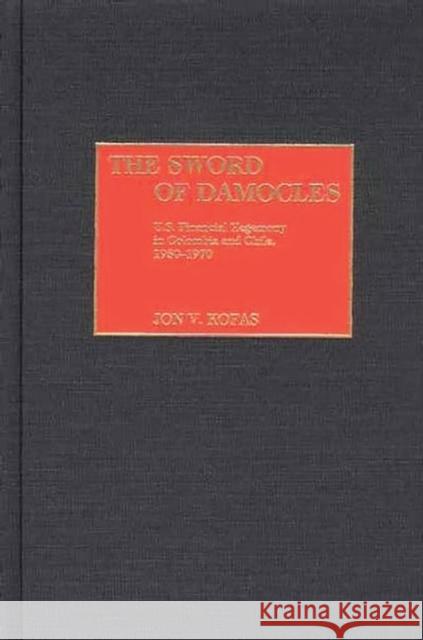The Sword of Damocles: U.S. Financial Hegemony in Colombia and Chile, 1950-1970 » książka
The Sword of Damocles: U.S. Financial Hegemony in Colombia and Chile, 1950-1970
ISBN-13: 9780275974053 / Angielski / Twarda / 2002 / 264 str.
The Sword of Damocles: U.S. Financial Hegemony in Colombia and Chile, 1950-1970
ISBN-13: 9780275974053 / Angielski / Twarda / 2002 / 264 str.
(netto: 341,60 VAT: 5%)
Najniższa cena z 30 dni: 355,74 zł
ok. 30 dni roboczych
Bez gwarancji dostawy przed świętami
Darmowa dostawa!
Focusing on Chile and Colombia during the 1950s and 1960s, Kofas examines the impact of IMF, World Bank, and U.S. foreign policy on the economies and social and political institutions of Latin America. Far from fostering democracy and social justice, foreign loans and aid were major impediments to these ideals. Symptomatic of systematic underdevelopment, cyclical Third World foreign borrowing and debt crises have been responsible for maintaining the debtor nations integrated into the global market economy, perpetuating their dependency, and maintaining low living standards. Comparing Colombia and Chile, the book examines the complex factors of domestic and international forces that account for structural underdevelopment in the Third World.
A study on the historical antecedents of globalism and its impact on the Third World, this book analyzes the interplay between IMF, World Bank, and U.S. foreign policy in shaping the economies of the Third World through loans that are the catalyst to global integration. Through its in-depth look at a complex topic, this book will prove provocative and valuable reading to students of globalization, inter-American relations, international finance, Latin American History, and U.S. diplomatic history.











